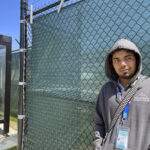
Stuxnet: The Dawn of Cyber Warfare, by Charles Denyer, examines how by initiating this destructive piece of software, the United States and Israel effectively set off an arms race in cyberspace, and though Stuxnet is now gone (experts believe it stopped functioning in 2012), the ramifications are still with us. Just as the use of nuclear weapons on Japan by the United States during World War II ushered in the nuclear arms race, countries all throughout the world are pursuing a similar cyber-weapons race.
AUSTIN, Texas, April 29, 2022 /PRNewswire-PRWeb/ — The year was 2010. As Iran pushed more aggressively to develop nuclear capabilities, America, Israel, and countless other nations watched with great concern. A nuclear-armed Iran would prove hostile to the Middle East. Perhaps Iran’s nuclear initiatives–specifically, their centrifuges–could be physically wiped out, destroyed, made inoperable–all without a single bullet being fired. Impossible? Hardly. It happened with a combination of American and Israeli cyber ingenuity. It happened with Stuxnet.
Stuxnet: The Dawn of Cyber Warfare, by Charles Denyer, examines how by initiating this destructive piece of software, the United States and Israel effectively set off an arms race in cyberspace, and though Stuxnet is now gone (experts believe it stopped functioning in 2012), the ramifications are still with us. Just as the use of nuclear weapons on Japan by the United States during World War II ushered in the nuclear arms race, countries all throughout the world are pursuing a similar cyber-weapons race.
Excerpts from Stuxnet: The Dawn of Cyber Warfare:
“There’s a long, twisted, and winding road that leads to nowhere when in search of the truth as to who developed Stuxnet, how it was implemented, and how the world found out about it. And though important questions that history would like answered, what’s more important to understand is what it did, and what software like Stuxnet can do–and will do–in the future.”
“But what if Operation Olympic Games didn’t go as planned? What if the malware didn’t work as designed, leaving Iran’s nuclear capabilities intact–and on course to create a true weapons-proliferation program deep in the heart of the Middle East? And what if the ongoing diplomatic efforts to limit Iran’s nuclear program failed, leading to military conflict?”
“Iran has stated on numerous occasions that the attack on their nuclear facilities emboldened them, possibly worsening the scenario of a hostile regime one day possessing the world’s most deadly weapons. Has the genie been let out of the bottle? Is Pandora’s Box now open, never to be closed? Critics say yes, that America fired the first cyber shot with Stuxnet, which has forever changed the rules of warfare.”
The Enemy of the State book series is available on Amazon.
About Charles Denyer
Charles Denyer is an Austin-based cyber-security and national-security expert who has worked with hundreds of US and international organizations to help them obtain a true competitive advantage with cyber security, data privacy, and compliance. He consults regularly with top political and business leaders throughout the world, including former prime ministers, vice presidents of the United States, White House chiefs of staff, secretaries of State and Defense, ambassadors, high-ranking intelligence officials, CEOs, entrepreneurs, civic leaders and others. He is an established author, with multiple books currently in print, along with being the personal biographer to three US vice presidents.
Media Contact
Thomas Smith, Independent Public Relations Consultant, 2025550814, tpsmith62307@gmail.com
SOURCE Charles Denyer




